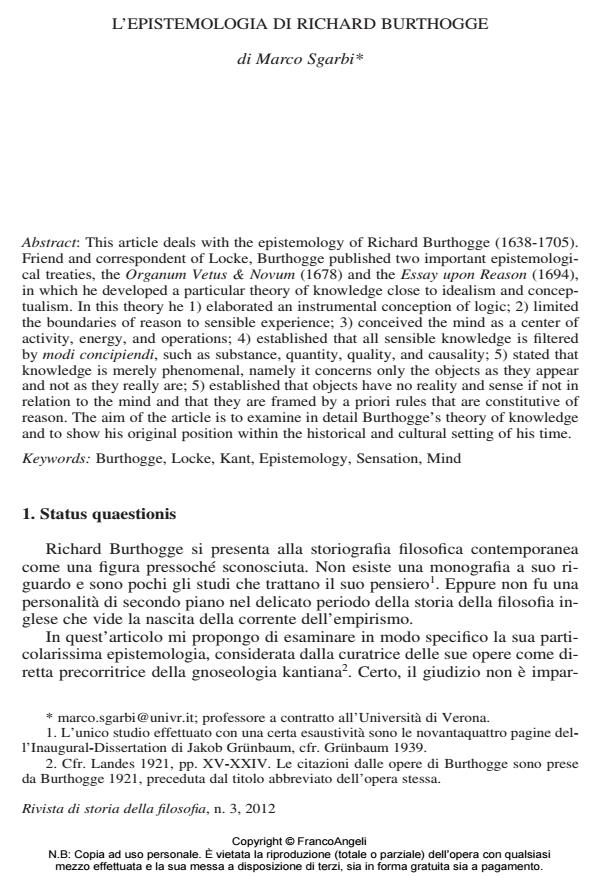L’epistemologia di Richard Burthogge
Journal title RIVISTA DI STORIA DELLA FILOSOFIA
Author/s Marco Sgarbi
Publishing Year 2012 Issue 2012/3
Language Italian Pages 29 P. 493-521 File size 530 KB
DOI 10.3280/SF2012-003003
DOI is like a bar code for intellectual property: to have more infomation
click here
Below, you can see the article first page
If you want to buy this article in PDF format, you can do it, following the instructions to buy download credits

FrancoAngeli is member of Publishers International Linking Association, Inc (PILA), a not-for-profit association which run the CrossRef service enabling links to and from online scholarly content.
This article deals with the epistemology of Richard Burthogge (1638-1705). Friend and correspondent of Locke, Burthogge published two important epistemological treaties, the Organum Vetus & Novum (1678) and the Essay upon Reason (1694), in which he developed a particular theory of knowledge close to idealism and conceptualism. In this theory he 1) elaborated an instrumental conception of logic; 2) limited the boundaries of reason to sensible experience; 3) conceived the mind as a center of activity, energy, and operations; 4) established that all sensible knowledge is filtered by modi concipiendi, such as substance, quantity, quality, and causality; 5) stated that knowledge is merely phenomenal, namely it concerns only the objects as they appear and not as they really are; 5) established that objects have no reality and sense if not in relation to the mind and that they are framed by a priori rules that are constitutive of reason. The aim of the article is to examine in detail Burthogge’s theory of knowledge and to show his original position within the historical and cultural setting of his time.
Keywords: Burthogge, Locke, Kant, Epistemology, Sensation, Mind
Marco Sgarbi, L’epistemologia di Richard Burthogge in "RIVISTA DI STORIA DELLA FILOSOFIA" 3/2012, pp 493-521, DOI: 10.3280/SF2012-003003